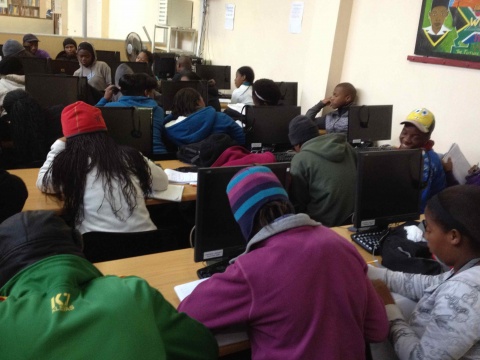
While all the Makhaza students enjoy the last week of their winter school holidays, taking a much needed break from the intense focused energy needed for winter school, the Western Cape matrics have given up their entire holiday to continue with tutoring, mentoring, exam preparation, and tertiary applications.
This week sees intensive academic writing and bursary application writing workshops being run by Rose and Francisca, two volunteers from Stanford university, as well as each matric filling out at least 5 application forms for tertiary. It’s only Wednesday and so far everyone has applied for UCT, TSiBA, UWC, CPUT, Northlink and a few for Stellenbosch University. All this interspersed with tutoring, tutoring and more tutoring (with the odd test thrown in..)
Big up matrics!! The end is nearly in sight, by giving up your holiday for this last gasp of intensive tutoring and mentoring it’s setting yourself up for a spectacular finish at the end of the year!
There are only a few days left, if you are interested in tutoring or mentoring the matrics, please email liesel@ikamvayouth.org, alternatively call Zukile on 021 362 6799

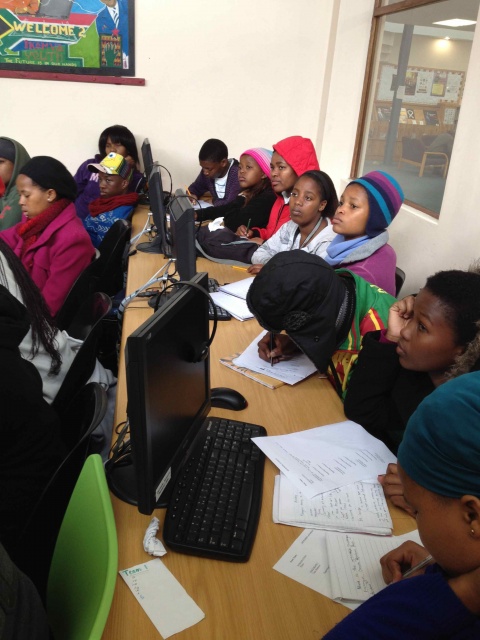
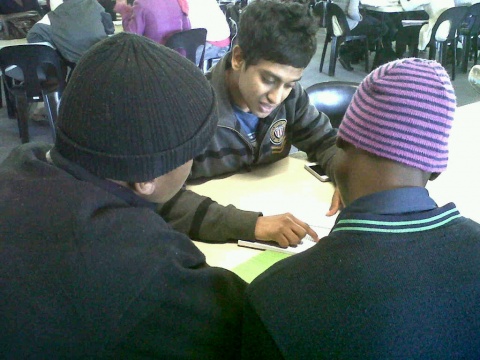
Five International interns are at IkamvaYouth centres (Ebony Park and Ivory Park) in Gauteng for the next six weeks. Four of the interns are from India and one is from The Czech Republic and they have already begun to actively interact with the Ikamvanites in Gauteng. The Ikamvanites are excited to learn about the interns’ different cultures and it became evident after the Saturday tutoring session that the learners all wanted to be around our new visitors.
The interns are currently involved in helping to organise Winter School, cataloguing books in the library, tutoring and mentoring the learners.
IY partnered with an organisation called AIESEC which made the arrival and participation of these interns possible. AIESEC is the world’s largest youth-run led organisation. It is focused on providing a platform for youth leadership development. AIESEC offers young people the opportunity to participate in international internships, experience and participate in a global learning programme.
Our new interns are moving around with the motto, “Each one – teach one,” and they believe that this is a good platform for them to empower youths in South Africa.
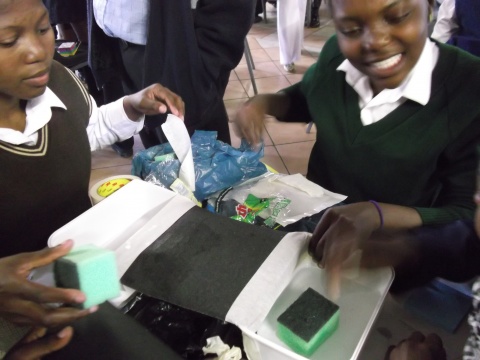
About 40 Grade 10 learners from both the Ebony Park and Ivory Park branches in Gauteng attended the Hip2b2 Innovation Challenge Introduction Event. The focus of the event was to spark the interest of learners in Maths and Science and they were told that their innovation could win them the ” SA Young Innovator of the year award.”

Maths, Science and Technology related topics where presented to the learners in a fun, interesting and relevant way. It was a fun-filled afternoon event with activites, team challenges and videos introducing learners to the world of innovation, science and engineering. Learners were given guidance on how maths and science lay foundations or building blocks for careers in the fields of innovation, technology, healthcare, safety and transport.
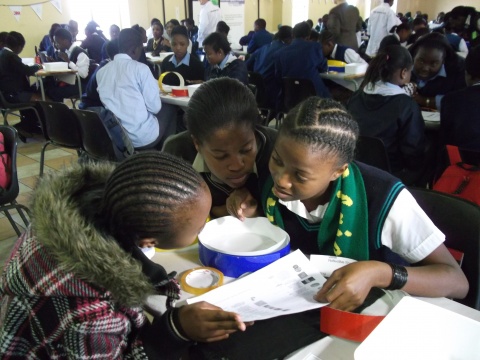
HIP2B² has partnered with 3M, a diversified technology company serving customers and communities with innovative products and services and industry leaders in innovative solutions for everyday life, and our learners got to see how exciting maths and science can be.
Our learners are geared up and ready to show the world how they can contribute to their communities positively.
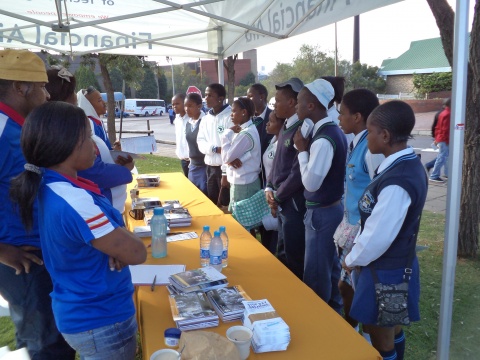
On Saturday the 12th of May, 25 Grade 12 learners were at the IkamvaYouth Ebony Park centre by 6:30am ready to attend the much awaited University Open Days. The Universities that had Open Days included Wits University, University of Johannesburg and Tshwane University of Technology. The learners arrived at the different Universities by 7:30 am and began to tour the University grounds and also began to interact with other learners from the universities as well as other High Schools. They toured around the different faculties and with the assistance of our very commited volunteers, the learners began to make some serious decisions about what they wanted to study in tertiary and see what they already qualified for with their current marks.

The Ikamvanites enjoyed the whole experience and said that it gave them a chance to interact with people from all over the country and also get a perspective of what university life is like from the university students. Dikamatso, an Ikamvanite from Tsosolotso High School said that it was a great motivator to see what they saw and experience all they experienced. The end result of the day was that the Ikamvanites decided to continue to take their future into their own hands by collecting the application forms and bursary applications. The Matriculants all understand that by failing to prepare they are already preparing themselves to fail, therefore preparation is very essential.
We look forward to succcessful Grade 12’s this year and the IY team would like to continue to thank the loyal volunteers who have committed themselves to helping all our learners.
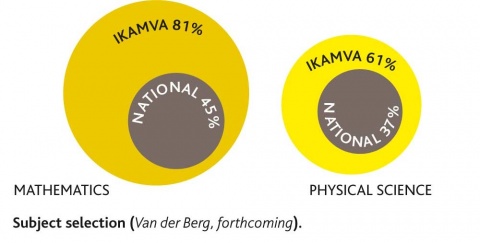
IkamvaYouth is pleased and proud to announce the publication of Against the odds: An evaluation of the IkamvaYouth programme, by a team of economists at the University of Stellenbosch. Servaas van der Berg and his team conducted an in-depth evaluation of IkamvaYouth, by administering questionnaires and interviewing 828 ikamvanites (past and present).
The full report is available here for download, and contains a wealth of information, results, analysis, quotes from ikamvanites and recommendations for improvements and scale.
Some of the findings have validated the results we’ve reported via our own tracking (see below). However, there were also some new and interesting findings, including:
- Insight into ikamvanites’ wealth and living standards
- Only 38% of ikamvanites live with their parents; 45% sometimes go to bed hungry; only 31% have their own desk or table at home and 65% have their own bed.
- 22% of mothers have matric and 11% have some post schooling
- 15% of fathers have matric and 9% have some post schooling; 32% of fathers’ education levels are unknown
- Matric results as compared with those of our feeder schools
- Detail regarding learners’ choosing Maths and Science and their performance in these most-challenging subjects
- “An overwhelming majority (81%) of Ikamva students in 2011 elected to do Mathematics, versus less than half of all candidates nationally. For Physical Science too, far more Ikamvanites chose this difficult option. Reponses to the survey indicate that similarly high proportion of former Ikamva students had elected these two subjects: 78% wrote Mathematics and 54% Physical Science.”
- “The difficulty of these subjects can be gauged from the fact that nationally, the pass rate (at 30%) is 46% and 53% for these two subjects respectively, much lower than for other electives such as Geography (70%) or History (76%), despite the fact that the candidates in these first two subjects are a far more select group in terms of academic ability. This ambitious subject choice is even more exceptional when compared to learners from similar (mainly township) schools. Ikamva’s encouragement of learners to take these more difficult subjects necessarily affects the relative pass rates and the subject performance of Ikamva learners negatively, thus the need to carefully consider this when evaluating Ikamva learners’ results.”
- “61% of all Ikamva matric candidates wrote and passed Mathematics, as against only 21% for all South African matric candidates.3 The proportion of all Ikamva matric candidates who achieved 40% or more was 28% versus 14% for all South African candidates. Compared to similar communities the Ikamva performance in this regard would even be more impressive than this.”
- ” What Ikamva thus successfully manages to do is to encourage learners from across the ability spectrum to raise the bar, by entering for subjects which the typical student from weak schools would usually avoid, and then to achieve success which is at least comparable to that achieved by candidates that often are more selected in terms of ability and from higher socio-economic groups. This is a truly impressive achievement.”
- The good results are consistent: “average results differ little between branches”
- The programme is very highly regarded by our learners and ex-learners (they do tell us these things, but it means a great deal more when told to independent evaluators)
- “The evaluation team is confident that Ikamva’s short term impact is considerable. This lies not only in the improved matric performance, but even before that in helping to create an environment where children from often very disadvantaged circumstances feel a sense of belonging and that someone cares about their needs and ambitions. That alone is a very valuable contribution. The extent of this contribution cannot be measured, but is visible in the fact that Ikamva was so highly praised by all who participates in it, or have done so in the past. As an evaluation team we have not seen such universally high praise of an organisation before.”
- Insight into the “success factors” behind the IY model
- “The remarkably successful personal relationships that Ikamva has developed with participants, based on extremely sensitive interaction with learners, yet without undermining basic discipline: “Kickouts” still occur and learners know that they can only remain part of the “family” if they play their part.”
- The tutors: “They are largely volunteers and mostly young. The fact that many of them are former Ikamvanites say something about the glue that holds Ikamva together: A positive social context in an environment where many face harsh circumstances at home, in the labour market, schools, universities, and wider society. The link with Ikamva means much to them, and also provides some continuity in their lives. Also, they act as role models to learners, thus further strengthening the desire of learners to undertake tertiary studies. Their relative youth also means that communication with learners is easier, in contrast to what learners experience at school. The team found no evidence that the tutors were particularly well trained or that they were always much better teachers than those in schools; the commitment, positive interaction and additional time were apparently most important in the success of students, not the better teaching.”
- “The fact that Ikamva operates in metropolitan environments where there are universities close by is an important factor in its success. Without a strong volunteer base, the tutors would not have been available, and it would have been more difficult to build the passion for tertiary studies that drives many Ikamvanites.”
- “The most important factors in Ikamva’s success, however, appear to be its commendable organisation, good planning and the enthusiasm of those at the head of the organisation. This enthusiasm is contagious.”
- Matric results
- “85% of Ikamva candidates passed, against the 70% nationally, or put differently, that Ikamva’s failure rate of 15% was half of the national average. But the full extent of Ikamva’s performance success is not yet captured in simple pass or fail rates: What is quite impressive is Ikamva’s performance in terms of getting learners access to universities: 36% of Ikamva candidates, versus 24% nationally, obtained a so-called “Bachelor’s degree endorsement”, i.e. a pass that is considered by the Department of Basic Education as good enough for degree studies. This is what used to be referred to in the past as “university exemption”. Data on a race basis is not yet available for 2011, but to put the Ikamva performance in terms of potential university entry in perspective, it is worth considering that the proportion of black students who obtained such exemptions in 2007, the last year for which race data could be obtained, was only around 11%. Altogether 72% of Ikamva candidates passed with either Bachelor’s or a Diploma endorsement, i.e. could potentially attend a university for degree or diploma studies (some universities have stricter entry criteria, though), whilst this proportion is only 53% amongst matric candidates nationally.”
- Placement into post-school opportunities
- More than half of respondents who had matriculated whilst participating in Ikamva after matriculating (58% of the 119 such respondents in the survey) indicated that they had gone onto university studies, and another 14% that they had continued onto “college” (here interpreted fairly broadly as other post-school studies). This thus left only 28% who had not gone on to further studies.
Key recommendations which we’re currently considering carefully include:
- Find ways to support learners as they adjust to life at tertiary
- “Ikamva could, and should, find ways of assisting students to make the transition to university, both by assistance with the initial exposure to academic English that many respondents to the qualitative interviews found daunting, and by helping them to find support structures to reduce the anomy that they experience when starting at university. Ikamva would have to decide how much of this it wants to engage in itself (which is not its core activity), and how much can be done by assisting Ikamvanites to link to other institutions (e.g. NGOs and university structures) that could assist.”
- Provide more support to build proficiency in Academic English
- Scale cautiously:
-
“Given how important Ikamva’s leadership is in its success, one may well argue that it would be extremely difficult to scale up the activities, particularly across many more centres. The evaluation team has indeed expressed its reservations about that in previous interaction with Ikamva: It is easy for leadership to under-estimate the importance of its own role. A dilution of this leadership across a much bigger organisation may lead to the programme losing some its attractiveness to students. On the other hand, analysis shows little difference in performance between branches. This could be interpreted as that the success lies in the model, and not in the particular leadership at branch level. This would be consistent with a view that expansion could be attempted as long as good branch leadership can be found. A cautious approach may be to consider expansion only when there are good support structures and where good branch managers are available, but not to be over-ambitious. The strong central leadership capacity that Ikamva possesses for planning and organisation is an asset that could be built on and that may offer a solid foundation for expansion, but it should not be endangered by too rapid expansion. Also, expansion should retain the essentials of the existing model, which importantly includes proximity to a university environment, preferably in a metropolitan area. This limits scalability, but such a conservative stance may be appropriate.”
IkamvaYouth is greatly appreciative to the Evaluation team (Nic Spaull, Ronelle Burger, Cobus Burger, Chris van Wyk, Servaas van der Berg, Robert Dzivakwi and the fieldworkers), ikamvanite Phillip Mcelu for tracking down 95% of all ikamvanites (!), DGMT for making this possible, and to all the ikamvanites who participated in the survey and interviews.

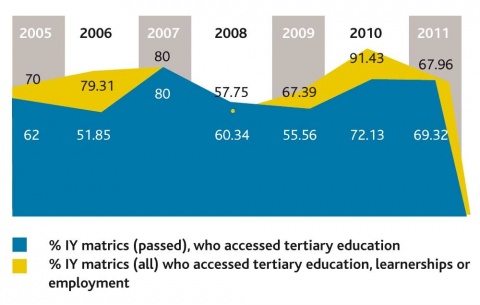
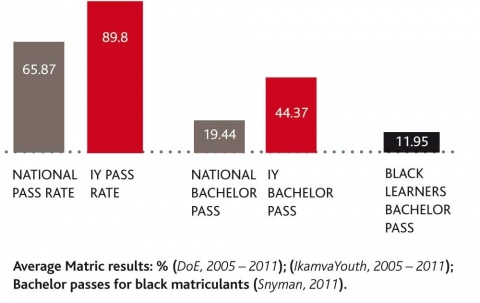
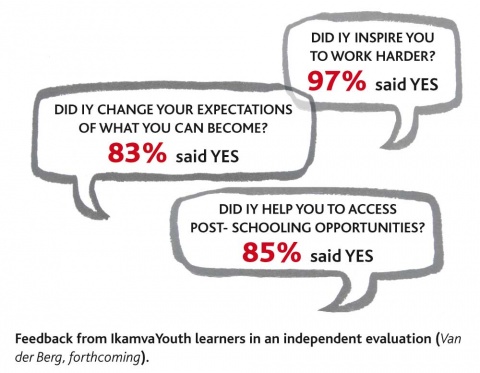

One of Makhaza’s tutors was lucky enough to be involved with Dance4Life and RedZebra Foundation which uses creative facilitation techniques, dialogue tools, bottom up processes as well as music and rhythm to deliver powerful experiences for the young people. The approach is youth friendly and centered around the notion that
Dance for life is a dynamic international initiative that involves young people; it encourages them to use their voices in stopping the further spread of HIV/AIDS and breaking down the stigma and taboos that surround the pandemic. Its approach covers all aspects of popular youth culture: media, language, icons music and especially dance. Dance is a universal language and through Dance4life young people dance with a cause. During the Schools4Life project (visiting schools and run workshops), which is the heart of the concept, they acquire the knowledge and life skills they need to protect themselves, while motivated to inform their peers and take action to improve young people reproduction health and rights.
By involving youth, it’s possible to change not only their behavior but also to mobilize them to create social change in their communities so that others change their behavior and perceptions as well. Dance4Life strives to empower young people to unleash their leadership potential, including young people living with HIV.
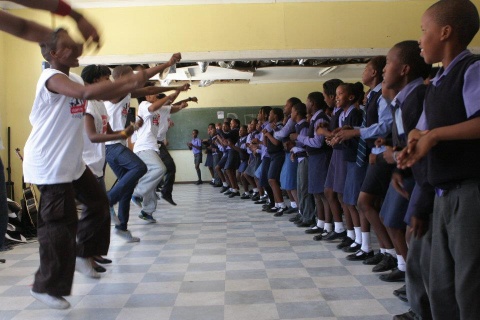
Ayanda Sawulisi, a past IkamvaYouth learner at the Makhaza branch, now a committed tutor participated for the week’s training and has this to say, ‘Well I got involve in the Dance4life project via Ikamva Youth. I got interested in the program because I love to work with young people and being the person that I am who is involved in the entertainment industry, I believe that I can use my skills and elevate dance4life project to new heights.
I also joined because Dance4life’s tool of getting the message across is very unique and inclusive ways though dance, music, spoken word etc which are my areas of interest. The training was great; it was very informative in terms of leadership skills and how to run workshops. It was full of energy, skills exchanging and creativity. Most of all I enjoyed to learn the dance which was the core element of the program and I was blessed to be amongst individuals who are very talented and who are in the virtue of becoming young leaders. The dance will help me in a way that I will be able to teach others but most of all to teach them the message behind the dance and it also help in terms of fitness/health because you sweat very much!’
Big up to Peter Schaupp and RedZebra Foundation for the opportunity!
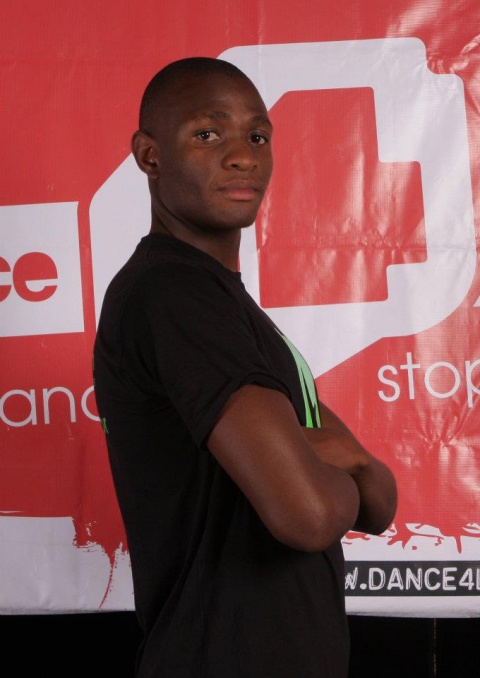





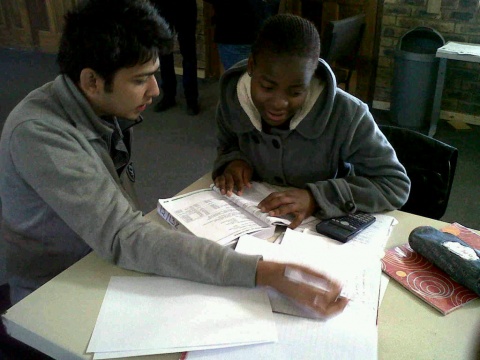


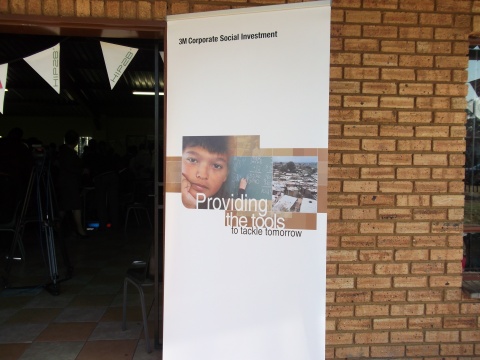
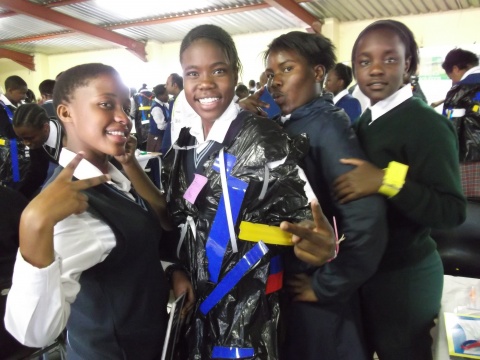








 Lloyd Lungu
Lloyd Lungu